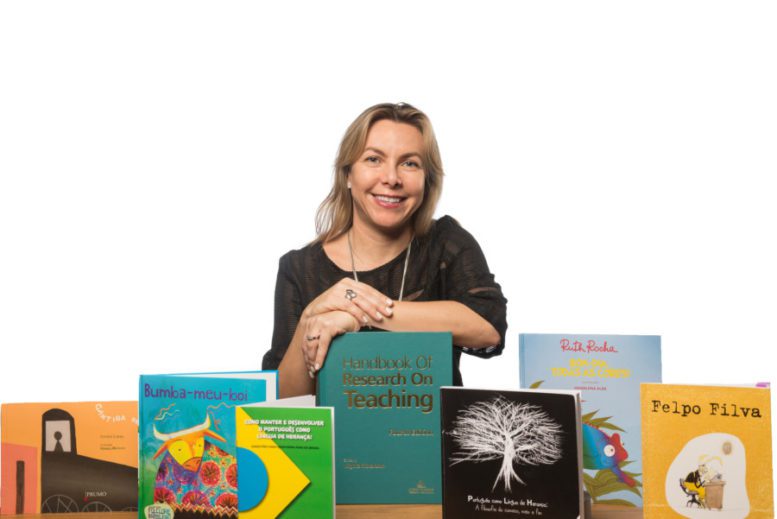Ivian Destro Boruchowski and her children are among the nearly 77 percent of people in Miami who speak a language besides English at home. A Ph.D. student in the School of Education and Human Development, she has dedicated her career to helping students improve their reading, writing and numeracy skills in their heritage language — the language learned at home as a child.
Globalization is threatening the existence of some languages. The threat is so pervasive, UNESCO has designated Feb. 21 as International Mother Language Day to celebrate linguistic and cultural diversity and to promote protective measures for endangered languages. FIU linguistics professor Phillip M. Carter, who recently authored a book examining the world’s shrinking pool of languages, says the most productive way to revitalize vulnerable languages is to educate the young.
For her doctoral dissertation, Destro Boruchowski will assess the opportunities and challenges teachers face in developing curriculum for these heritage speakers.
“Being bilingual gives you the opportunity to experience the world from different perspectives and to have an enriched life,” said Destro Boruchowski. “But it’s not only about the language. You need to be culturally competent in order to be functional in the language.”

While teachers play an important role in developing heritage language competency, families have a part in it too. With nearly 2 million Brazilians living outside of Brazil, Destro Boruchowski co-authored a book for parents on how to keep Portuguese part of their everyday lives. She applies these tips in her own home. She has built a Portuguese-language library of games, books, DVDs and CDs. She has switched the default language on her sons’ mobile devices to Portuguese. And she partnered with her sons’ teachers to allow them to read independently in Portuguese two days out of the school week.
“Every family can adopt a linguistic policy that works best for them. We’ve decided to speak only Portuguese in the home, and I ask my kids to answer me in complete sentences,” Destro Boruchowski said.
She also wants her children to be able to communicate with their grandmother, learning from her life experiences. Knowing heritage language can help keep families close, she said.





